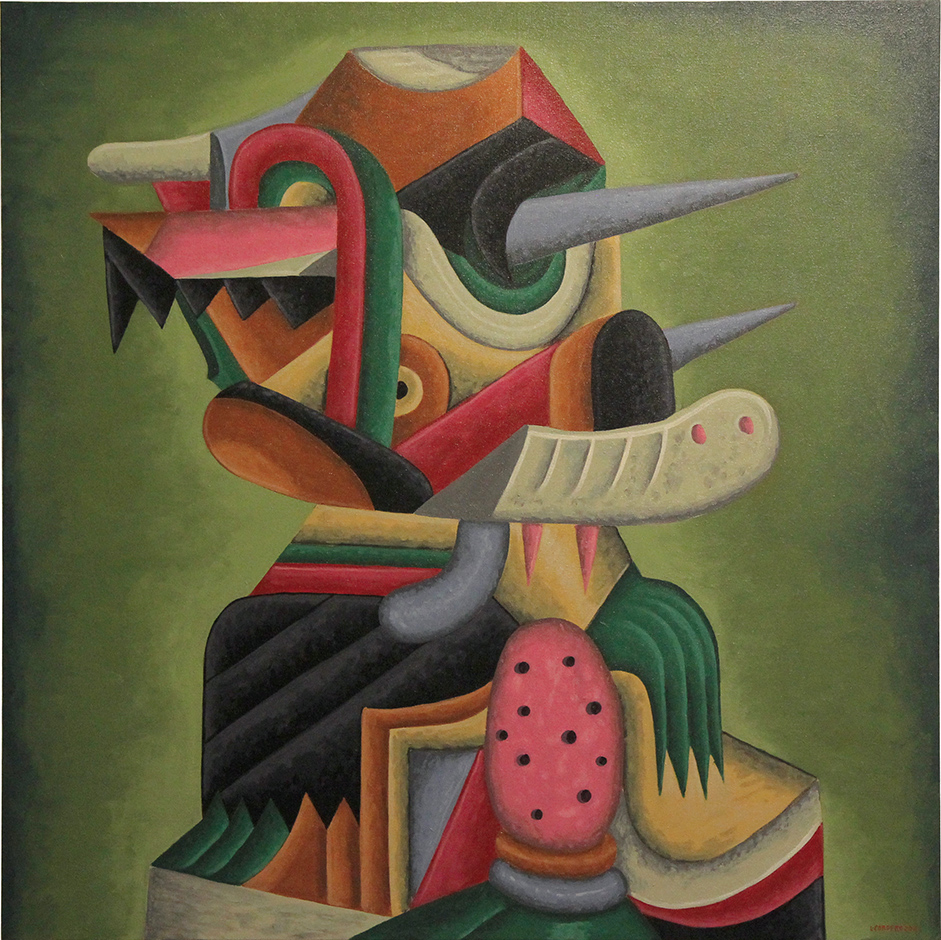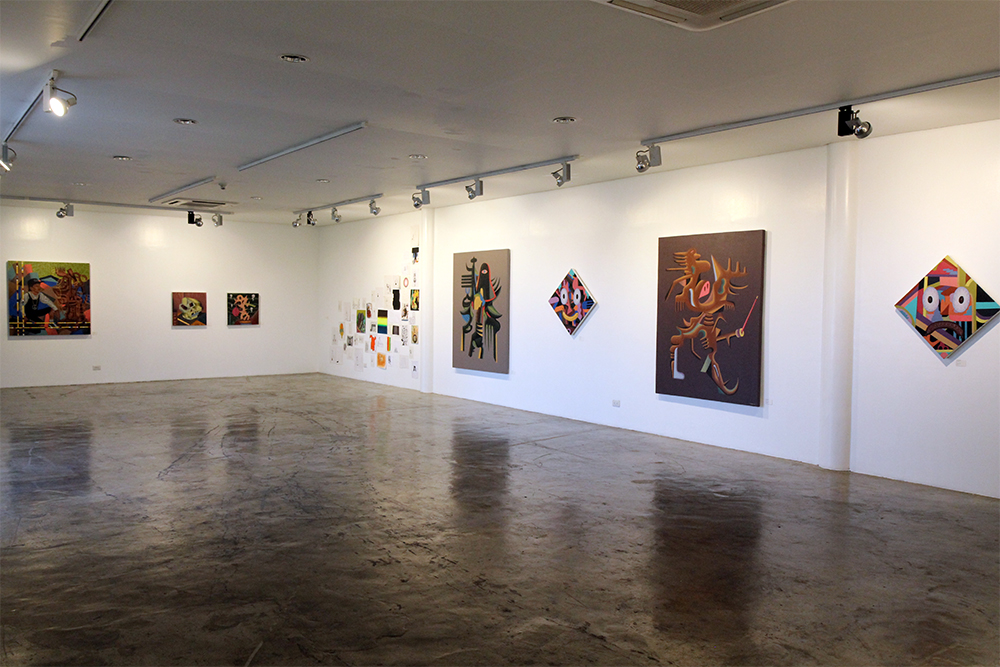
In his latest work, Louie Cordero makes earnest attempts to cast out figuration, refinement, detail, voluptuousness, spectacularity, and trendiness. What are tossed up are rudimentary interlocking forms and planes—caricatures of Cubist lessons to art history—with a touch of cartoon. These are odd, reduced, and debased visions that are outlandish legacies of primitive and African cultures filtered through (mis)translations of Western avant-gardism which denote blindness, misapprehension, and birth-pains. They put on long-play the slick contemporary summations of a relentlessly media-saturated and increasingly chaotic yet totalitarian world to give attention to a type of reckoning slowed down by bizarre meetings, daft aggregations, and failures in circuitry. Cordero re-examines the primitive that has always been enmeshed with modernity. Putting on the lens of old-school futurism, the images that result are gaily out-of-sync and sometimes forlorn, pining after the promises of the modern. Both poking fun and reviewing the limits and clichés that operate in one’s notions of knowing, different ways of seeing inevitably territorialise and de-territorialise each other.
About the Artist
About the Artists

Louie Cordero was born in 1978 in Manila, Philippines and is currently based in Cuenca, Batangas. A graduate of the College of Fine Arts at the University of the Philippines and held a residency in the United States at the Vermont Studio Center (2003). He’s a recipient of numerous awards including the Thirteen Artists Award from the Cultural Center of the Philippines (2006). His work has been exhibited at Sonsbeek ’16 transACTION, Netherlands (2016); the Open Sea exhibition at Musée d’Art Contemporain de Lyon, France (2015); World of Painting, Heide Museum of Modern Art, Australia (2008); Singapore Biennale (2011); the 14th Jakarta Biennale (2011); and PANORAMA, Singapore Art Museum (2012).
His work has been exhibited in the Philippines, Jakarta, Thailand, Denmark, Berlin, the Netherlands, France, Australia, and the United States.
Related Exhibitions
About the Artists
About the Artist
Louie Cordero was born in 1978 in Manila, Philippines and is currently based in Cuenca, Batangas. A graduate of the College of Fine Arts at the University of the Philippines and held a residency in the United States at the Vermont Studio Center (2003). He’s a recipient of numerous awards including the Thirteen Artists Award from the Cultural Center of the Philippines (2006). His work has been exhibited at Sonsbeek ’16 transACTION, Netherlands (2016); the Open Sea exhibition at Musée d’Art Contemporain de Lyon, France (2015); World of Painting, Heide Museum of Modern Art, Australia (2008); Singapore Biennale (2011); the 14th Jakarta Biennale (2011); and PANORAMA, Singapore Art Museum (2012).
His work has been exhibited in the Philippines, Jakarta, Thailand, Denmark, Berlin, the Netherlands, France, Australia, and the United States.

Related Exhibitions

Share























